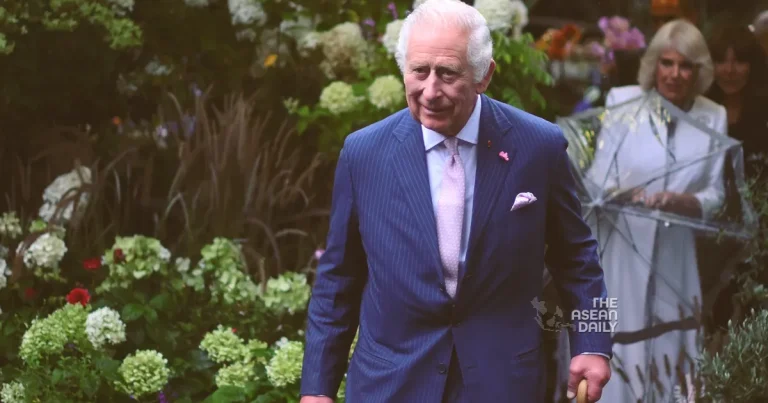19-3-2024 (LONDON) In a startling display of the profound impact of disinformation in the digital age, a rumor regarding the purported demise of King Charles III sent shockwaves through the Russian media landscape on Monday afternoon. The unfounded claim, which swiftly disseminated across various platforms, served as a stark reminder of the ease with which falsehoods can propagate and the challenges posed by the viral nature of misinformation.
The saga began when a Telegram channel associated with Vedomosti, once Russia’s most esteemed business newspaper, shared a photograph of the British monarch donning ceremonial military attire, accompanied by a terse caption: “British King Charles III has died.” This initial spark ignited a wildfire of speculation and misinformation that rapidly permeated Russian internet channels, including the pro-Kremlin Telegram channel Readovka, boasting a staggering 2.35 million subscribers.
Remarkably, despite the absence of any official announcement from Buckingham Palace or confirmation from the BBC, the rumor gained traction and credibility through the dissemination of an ostensibly official document. The document, whose provenance remains shrouded in mystery, bore an ominous declaration: “The following announcement is made by royal communications. The king passed away unexpectedly yesterday afternoon.” Dated March 18, 2024, the document lent an air of authenticity to the unfounded claim, fueling speculation and uncertainty.
The rumor swiftly transcended national boundaries, finding its way to Ukraine, where it was amplified by a prominent television station, and even reaching the independent media outlet Asia-Plus in Tajikistan. However, as the rumor spread like wildfire, concerns about its veracity began to surface.
The Russian website Gazeta.Ru initially tweeted, “King Charles III of Great Britain has died. This is reported by Buckingham Palace. The monarch was 75 years old. He was recently diagnosed with cancer.” However, the tweet was promptly edited to add a caveat: “At the same time, nothing has been written about this in the official British media. Most likely, the information is fake.” One prominent Russian media editor, grappling with the uncertainty, acknowledged the inability to discern the truth, while another speculated that the Buckingham Palace website had been compromised by hackers.
As the rumor mill churned, memes and satirical posts began to emerge, further muddying the waters. One pro-Kremlin channel even went so far as to photoshop King Charles’s head onto a recent photograph of the Princess of Wales, accompanied by the claim that Buckingham Palace had distributed the image to “dispel rumors about his death.” The Russian Foreign Ministry spokesperson, capitalizing on the chaos, dismissed the situation as “pathetic.”
Ultimately, it was the Russian state news agency Tass that brought a semblance of clarity to the situation, unequivocally stating, “King Charles III continues to perform his official duties and attend private engagements.”




